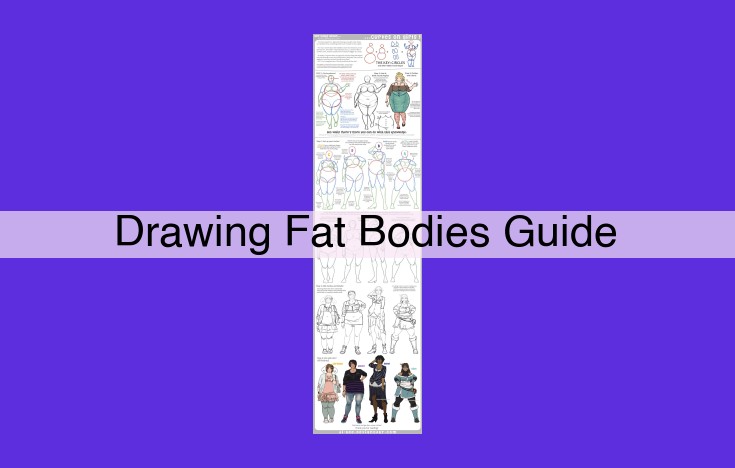Rod Wave’s weight loss journey is a testament to the importance of weight management for overall health and well-being. By embracing body positivity and self-love, he has overcome body image struggles and cultivated a healthy relationship with his body. His story emphasizes the significance of setting realistic goals, rejecting negative societal standards, and prioritizing health over aesthetics.
Rod Wave’s Weight Loss: A Path to Health and Fitness
Maintaining a healthy weight is crucial for our overall well-being. Excess weight can lead to numerous health challenges, including heart disease, diabetes, and stroke. Moreover, it can negatively impact our mental health, causing low self-esteem and body image issues.
Rod Wave, a renowned rapper, embarked on a transformative weight loss journey that not only improved his physical appearance but also his overall health and confidence. His story serves as an inspiring reminder of the profound impact that weight management can have on our lives.
Weight management involves adopting a balanced diet and engaging in regular physical activity. A nutritious diet provides our bodies with the essential vitamins, minerals, and nutrients they need to function optimally. Exercise, on the other hand, helps us burn calories, build muscle, and improve our overall health.
Embracing body positivity is also crucial for our well-being. Body positivity promotes the acceptance and love of one’s body, regardless of its shape or size. It encourages us to focus on our unique strengths and qualities rather than dwelling on societal standards of beauty.
Rod Wave’s weight loss journey is a testament to the power of self-determination and commitment. By making healthy choices and prioritizing his well-being, he was able to achieve his goals and transform his life. His story is an inspiration to us all, reminding us that with dedication and perseverance, we can overcome challenges and achieve our fitness goals.
Body Positivity: Embracing Acceptance and Self-Love
Body positivity is a social movement that seeks to challenge society’s narrow standards of beauty and promote acceptance and self-love of all bodies. It recognizes that every body is unique and worthy of respect, regardless of its size, shape, or appearance.
Social media plays a significant role in shaping our body image. The constant bombardment of images of idealized bodies can lead to feelings of inadequacy and dissatisfaction with our own. Unrealistic body standards perpetuate the notion that only certain body types are considered attractive or desirable.
Cultivating body acceptance and self-love requires a conscious effort. Here are some strategies:
- ****Challenge negative thoughts**: Recognize and challenge negative body thoughts that arise. Remind yourself that you are more than your appearance.
- ****Practice self-compassion**: Treat yourself with the same kindness and understanding you would offer a friend. Focus on your positive qualities and appreciate the things your body can do for you.
- ****Surround yourself with positive influences**: Seek out media and communities that promote body positivity and inclusivity. Surround yourself with people who value and accept you for who you are.
- ****Set realistic goals**: Aim for a healthy weight and body composition, but don’t obsess over unrealistic ideals. Focus on making gradual, sustainable changes to your lifestyle.
- ****Celebrate diversity**: Recognize and appreciate the beauty in all body types. Remember that there is no “right” way to look. Respect and celebrate the diversity of human bodies.
Embracing body positivity can lead to improved mental health and overall well-being. It frees us from the constraints of societal expectations and empowers us to live authentically. Remember, you are not defined by your body. You are worthy of love and acceptance, no matter what you look like.
Self-Love and Acceptance: Overcoming Body Image Struggles
Body image concerns can deeply impact our mental health, leading to feelings of inadequacy, low self-esteem, and even depression. In this article, we’ll delve into the connection between body image and mental health, explore the importance of setting realistic body goals, and provide strategies for cultivating self-love and combating negative body thoughts.
Body Image and Mental Health
Our body image is the way we perceive and think about our physical appearance. When our body image is negative, we may experience:
- Anxiety and depression
- Low self-esteem and self-worth
- Eating disorders and disordered eating habits
- Difficulties in social situations and relationships
Understanding the connection between body image and mental health is crucial for recognizing the need for positive body image and self-acceptance.
Setting Realistic Body Goals
Society often bombards us with unrealistic and unattainable body standards. Striving for these ideals can lead to disappointment, frustration, and further damage to our body image. It’s important to:
- Focus on health and well-being rather than appearance
- Set realistic body goals that are specific, measurable, achievable, relevant, and time-bound
- Avoid comparisons to others, as everyone’s body is unique
Cultivating Self-Love and Acceptance
Cultivating self-love and acceptance involves challenging negative body thoughts and replacing them with positive self-talk. This can be fostered through:
- Mindfulness: Paying attention to our thoughts and feelings without judgment
- Gratitude: Focusing on the positive aspects of our bodies and what they allow us to do
- Surrounding ourselves with positive people: People who support our body positivity can help us maintain a healthy perspective
Combating Negative Body Thoughts
Negative body thoughts can be persistent and intrusive. To combat them, we can:
- Challenge our thoughts: Question the validity of negative thoughts and replace them with more realistic and positive ones
- Use affirmations: Repeat positive affirmations about our bodies and self-worth
- Seek professional help: If negative body thoughts are impacting our daily lives, seeking therapy or counseling can provide support
Overcoming body image struggles is an ongoing journey. By understanding the connection between body image and mental health, setting realistic body goals, cultivating self-love and acceptance, and combating negative body thoughts, we can improve our body image and mental well-being. Remember, true beauty comes from within, and acceptance is the foundation for a fulfilling and joyful life.
Body Image: Addressing Social Media’s Influence
- Discuss how social media can perpetuate unrealistic body standards.
- Analyze the impact of edited and filtered images on body dissatisfaction.
- Offer strategies for navigating social media while maintaining a healthy body image.
Body Image: Navigating Social Media’s Influence
In today’s digital age, social media plays a significant role in shaping our perceptions of beauty and body image. While it can be a valuable tool for connecting with others and sharing our experiences, it also has the potential to perpetuate unrealistic and harmful body standards.
Unrealistic Body Ideals
Social media platforms are often flooded with images of perfectly sculpted bodies, airbrushed skin, and impossibly tiny waists. These idealized portrayals can create a sense of inadequacy among users, leading them to believe that their own bodies fall short of the perceived norm. The constant bombardment of these images can reinforce the idea that only certain body types are acceptable, creating a narrow and unattainable standard of beauty.
Edited and Filtered Images
Compounding this issue is the prevalence of edited and filtered images on social media. Apps and filters allow users to alter their appearance, making their skin smoother, their bodies slimmer, and their features more symmetrical. While these tools can be fun and creative, they can also contribute to body dissatisfaction by creating a false sense of what constitutes an “ideal” body.
Strategies for Navigating Social Media
Despite the potential pitfalls of social media, there are ways to navigate it while maintaining a healthy body image:
- Be critical: Remember that the images you see on social media are often carefully curated and may not represent reality. Question the authenticity of these images and don’t compare yourself to unrealistic standards.
- Follow body-positive accounts: Seek out influencers and creators who promote body positivity and self-acceptance. These individuals often share realistic images of their bodies and challenge harmful beauty standards.
- Limit your time on social media: Spending excessive time on platforms that trigger negative body thoughts can contribute to body dissatisfaction. Set limits on your social media usage and engage in activities that boost your self-esteem.
- Focus on your own health and well-being: Prioritize your physical and mental health over achieving an unrealistic body ideal. Engage in regular exercise, eat a balanced diet, and get enough sleep. These practices will not only improve your overall well-being but also enhance your body image.
- Talk to someone: If you struggle with body dissatisfaction, talk to a friend, family member, or therapist. Sharing your feelings can provide support and help you develop coping mechanisms.
By being mindful of social media’s influence on body image and adopting healthy navigation strategies, we can empower ourselves to cultivate a more positive and accepting relationship with our bodies.
Diet and Nutrition: Fueling a Healthy Body
- Explain the role of diet and nutrition in weight management and overall health.
- Emphasize the importance of balanced eating habits and consuming nutrient-rich foods.
- Discuss the risks of restrictive diets and promote a sustainable approach to nutrition.
Diet and Nutrition: Fueling a Healthy Body
The Power of Nourishment
Our bodies are intricate machines that depend on the fuel we provide them through our diet. Nutritious foods play a pivotal role not only in managing weight but also in achieving optimal overall health. A balanced and well-rounded diet provides the essential nutrients, vitamins, and minerals that our bodies crave to function at their best.
Embracing Balanced Eating Habits
A balanced diet is key to maintaining a healthy weight and overall well-being. It involves consuming a variety of foods from all food groups in appropriate proportions. Fruits, vegetables, and whole grains provide an abundance of fiber, vitamins, and antioxidants, while lean protein sources such as fish, poultry, and legumes support muscle growth and development. Healthy fats found in avocado, nuts, and olive oil provide satiety and support brain function.
Nutrient-Rich Choices
Choosing nutrient-rich foods is essential for fueling a healthy body. Instead of opting for processed foods laden with empty calories, prioritize whole, unrefined foods that are packed with essential vitamins and minerals. These nutrient-dense options provide more nutritional value for your caloric intake and help you feel fuller for longer.
Dangers of Restrictive Diets
Restrictive diets that promise rapid weight loss can be tempting, but they often come at a high cost to your health. Crash diets can deprive your body of essential nutrients, leading to fatigue, irritability, and nutrient deficiencies. They can also disrupt your metabolism and make it harder to maintain weight loss in the long run.
Embracing a Sustainable Approach
A sustainable approach to nutrition is crucial for lasting results. Focus on making gradual, healthy changes to your diet rather than drastic overhauls. Set realistic goals that you can maintain over time. Remember, it’s not about a quick fix but about creating a healthy lifestyle that supports your well-being.
Exercise and Physical Activity: Enhancing Health and Well-being
In pursuit of a healthy and fulfilling life, exercise and physical activity play a pivotal role. They not only enhance our physical well-being but also have a profound impact on our mental and emotional states.
Physical Benefits
Regular exercise supports our bodies in myriad ways, improving cardiovascular health, boosting immunity, and strengthening muscles and bones. It aids in weight management by burning calories and promoting muscle growth, leading to a healthier body composition. Additionally, exercise helps regulate blood sugar levels, reducing the risk of chronic diseases like type 2 diabetes.
Mental and Emotional Benefits
Beyond its physical benefits, exercise has a potent impact on our mental and emotional well-being. It triggers the release of endorphins, natural mood-boosters that alleviate stress, anxiety, and depression. Physical activity also enhances cognitive function, improving memory and attention span. Moreover, it fosters a sense of accomplishment and boosts self-esteem.
A Balanced and Enjoyable Approach
To reap the full benefits of exercise, it’s crucial to approach it with balance and enjoyment. Aim for moderate-intensity exercise most days of the week, gradually increasing duration and intensity as you progress. Choose activities that you find enjoyable, whether it’s brisk walking, swimming, cycling, or dancing. Remember, consistency is key, so find something you love and stick with it.
By incorporating regular exercise into our lives, we not only enhance our physical well-being but also cultivate a healthier and more fulfilling state of mind. Whether you’re hitting the gym, exploring the great outdoors, or simply engaging in a fun activity that gets your body moving, embrace the transformative power of exercise and unlock a world of improved health and happiness.




